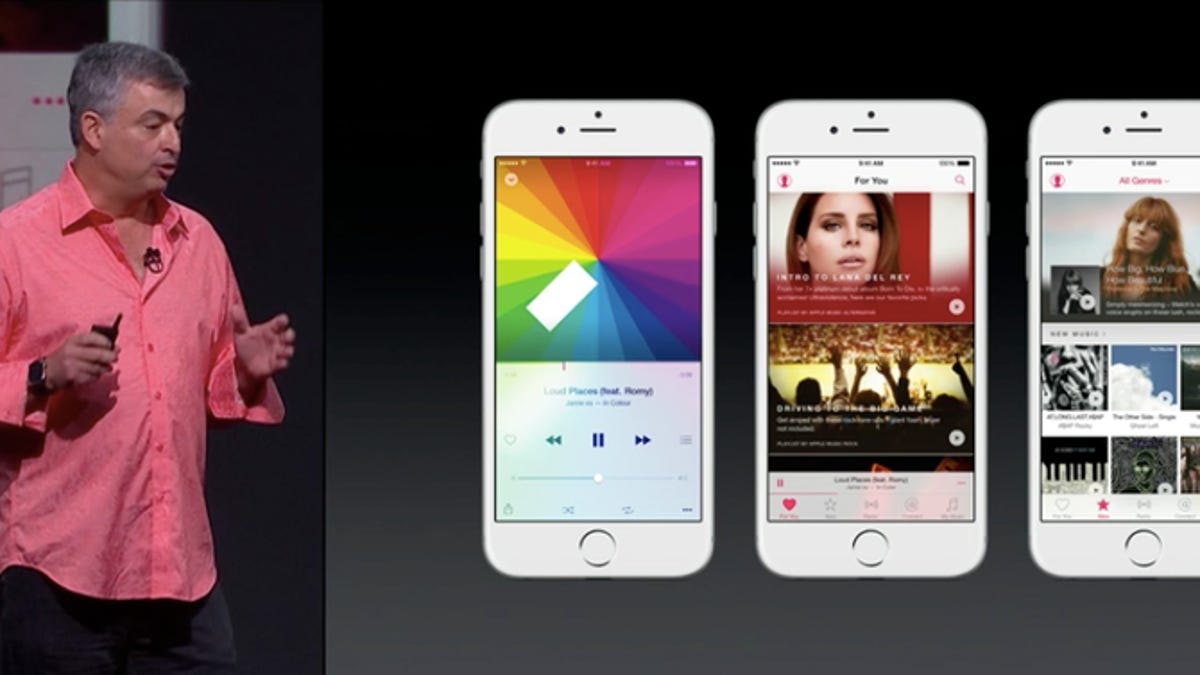Apple worries of increased iPhone snooping if FBI wins case
Apple's Eddy Cue tells Univision that the battle could lead to law enforcement using your iPhone's camera and microphone to keep an eye on you.

Eddy Cue, Apple's chief of Internet software and services, suggests an iPhone's camera and microphone could be used to spy on its users.
Apple fears an Orwellian-like future in which law enforcement could use your iPhone's camera and microphone to keep tabs on you if the US government succeeds in forcing the tech giant to help unlock an iPhone.
Eddy Cue, Apple's head of Internet software and services, made the grim prediction during an interview broadcasted Wednesday on Univision. Cue was on the Spanish-language TV channel to discuss Apple's opposition to FBI efforts to force the iPhone maker to help crack open an iPhone 5C linked to the massacre last year in San Bernardino, California, that killed 14 and injured 20.
"Someday they will want [Apple] to turn on [a user's] camera or microphone," Cue said during the interview. "Where does this stop? In a divorce case? In an immigration case? In a tax case with the IRS? Some day, someone will be able to turn on a phone's microphone. This should not happen in this country."
Apple has been battling the US Justice Department since a federal judge last month ordered Apple to disable the auto-erase function that kicks in when too many erroneous lock screen passcodes are entered into the phone. The FBI hopes the phone's contents will reveal more about the terrorists' activities leading up to the attack. But Apple, which had been helping with the investigation, says the government's request goes too far and would essentially create a backdoor or master key to millions of iPhones.
In the interview, conducted in Spanish, Cue echoed many of the concerns Apple has expressed in arguing against helping the FBI crack into the iPhone, including that such a backdoor would make millions of iPhone and iPads susceptible to hackers. Criminals and terrorists alike would benefit from such a tool, Cue argued.
"What they want is you to give a key to the back door of your house and you do not have the key," he said. "Since you don't have the key, they want to change the lock. And that key, once it exists, exists not only for us. Terrorists, criminals, pirates, all too will find that key to open all phones."
Industry insiders have argued that forcing Apple to follow the FBI's request could not only lead to the company being forced to help in other cases but also to it having to bow to demands from other governments. This happened to Facebook earlier this month, when one of its executives in Brazil was reportedly arrested for not complying with police requests in a drug-trafficking case to access messages sent over its WhatsApp service.
The battle has also turned up the heat on the simmering tensions between Washington and Silicon Valley over encryption -- the technology that scrambles information to prevent unauthorized readers from seeing it. Tech companies have become increasingly diligent about including encryption in products and services in the wake of revelations about US government surveillance programs from documents leaked by former NSA contractor Edward Snowden.
The encryption debate is complex and divisive among US citizens, according to multiple surveys. A Pew study found about 51 percent of those surveyed believed Apple should comply with the court order, while 38 percent said the tech giant shouldn't unlock the iPhone. However, a Reuters poll had opposite results. About 46 percent actually agreed with Apple's stance and 35 percent disagreed. In a CNET poll with more than 22,000 responses, an overwhelming majority sided with Apple's refusal to assist.
A court hearing to determine whether Apple should be forced to comply with the FBI's request is set for March 22 in federal court in Riverside, California.

